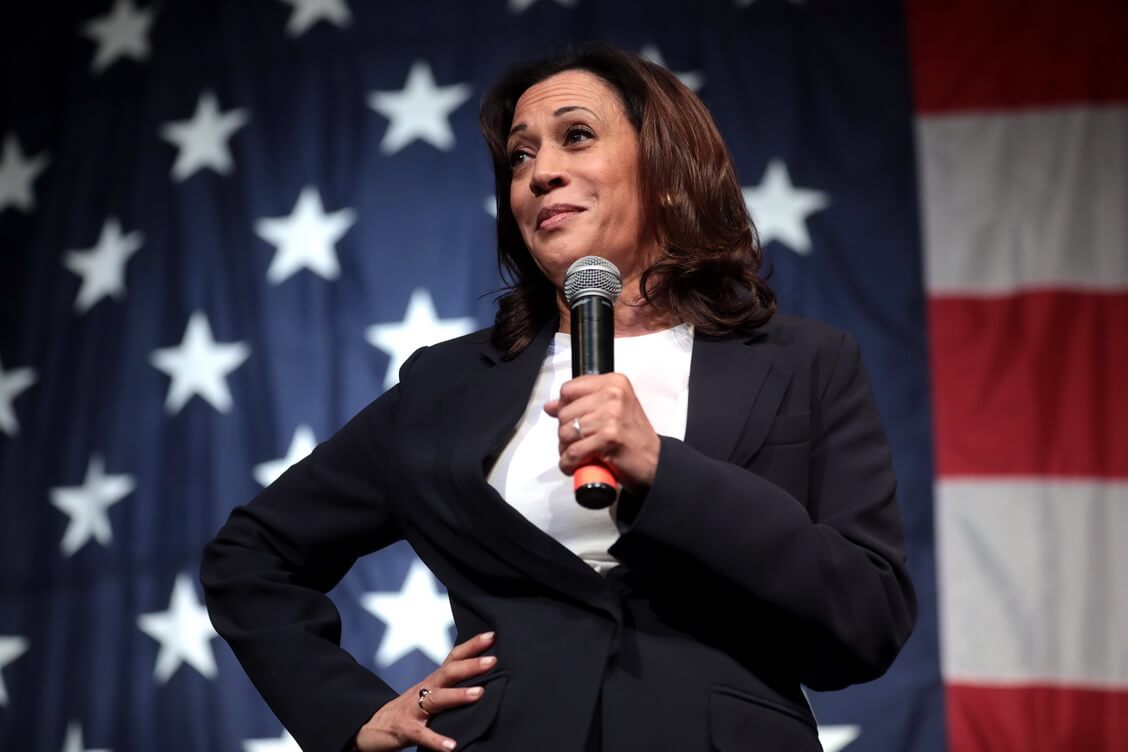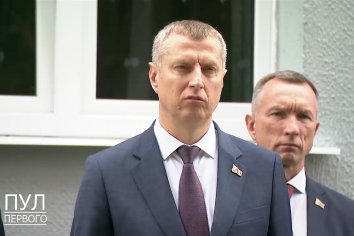While Donald Trump’s peace plan may give Ukraine some hope, it is completely unacceptable to Russia. However, it is likely to suit Alaksandar Łukašenka. Minsk is hoping for a Trump win in the US presidential election, while a Kamala Harris victory would be bad news for the Belarusian authorities.

The potential scope of Trump’s plan has been discussed in recent publications by former British Prime Minister Boris Johnson and former US Secretary of State Mike Pompeo.
Territorial gain vs strategic loss
Since Russia invaded Ukraine, former US President Trump has been blaming the Democrats, especially President Joe Biden, for the escalation in Europe. Trump claims that he would have prevented the war and is now in a position to put a quick end to the bloodshed.
Many of the Republican candidate’s critics are convinced that Trump is ready for the handover of Ukraine to the Kremlin. Some of the statements made by the politician and influential people close to him give serious reason to worry.
Trump’s former national security adviser, John Bolton, thinks the former president’s statements are just empty bluster and that the Republican candidate does not really have a plan to end the war.
Hungarian Prime Minister Viktor Orbán, who is close to Trump, thinks that if elected, the Republican would stop supplying Ukraine with arms, which would bring the war to an end.
But Boris Johnson and Mike Pompeo, who get along with Trump quite well, are expecting a different approach.
The versions of Trump’s plan as presented by Johnson and Pompeo, while different in some ways, have a lot in common.
Johnson and Pompeo say the goal is to have Russia to agree to fair peace talks. To that end, the US military would step up its support for Ukraine in both quality and quantity to force big concessions out of Russia.
Meanwhile, Ukraine would not be able to regain the territory it had in 1991 and would have to accept pretty significant losses. But Russian President Vladimir Putin would not achieve his goals, and in the end, he would even suffer a heavy defeat because Ukraine would join both the EU and NATO.
Trump’s plan, according to Republican Pompeo, involves lifting sanctions on Russia, but such a move would be of little comfort to the Kremlin.
Not surprisingly, Moscow reacted immediately. Foreign Minister Sergei Lavrov reiterated that all the goals of the “special military operation” will be achieved.
Putin’s spokesman Dmitry Peskov said that Moscow is aware of the negative views held by the “Russophobic elites” of the United States and does not expect the election to have any positive outcomes.
Minsk has not commented on Trump’s plan. The Belarusian government backs the Republican candidate and criticizes his Democratic rival Harris.
What does Trump’s plan mean for Łukašenka? And if Harris wins, what is in store for the Belarusian autocrat?
Serene old age for dictator
Łukašenka has repeatedly said that his main goal is to keep the Belarusian army in Belarus and prevent a fighting spillover into his country.
Up until recently, the authorities have been pretty lucky, and the current geopolitical situation in Europe has only increased the already great importance of Belarus for Russia. In that context, Moscow was quick to offer economic and political support to its only full-fledged ally.
The Belarusian leader keeps saying he wants peace, but he is actually quite happy with the way things are. However, the status quo is very fragile, and there is still a risk of Belarus’ deeper involvement in the war.
Łukašenka is trying to expand his little political maneuvering space as much as he can. He would like to reduce his dependence on Russia and improve relations with the West in order to have sanctions lifted or eased.
If Trump’s plan – as promoted by Johnson and Pompeo – is put into action, it would end the war and encourage a détente in Europe, which is also fine for Łukašenka. More so, it would even give him additional political and economic chances.
Belarus would still be a key player for Russia. It would remain Russia’s western outpost located on the border with Ukraine, a potential NATO member.
Moscow would keep supporting Łukašenka’s regime as much as it can. If the plan works, the Kremlin would have to hold back its imperial ambitions, which pose a threat to Belarus’ independence too. And therefore, Łukašenka would be able to spend the rest of his presidential life in relative peace.
Sick of “liberal terrorists”
Russian political scientist Tatyana Stanovaya told The Washington Post that Harris’ victory in the US presidential election would be “a huge disappointment for the Kremlin.”
Stanovaya notes that the Kremlin hardliners do not think Harris will take any concrete anti-Russian steps, but consider her a candidate of “liberal terrorists” with whom they cannot find common ground in principle.
Stanovaya has a point. Russian and Belarusian state propaganda is hostile to Harris because of racial and sexual prejudices that are common in these circles and also because of the rejection of liberal democracy and diversity.
Putin and Łukašenka are basically on the same page. Łukašenka is also counting on Trump, who he sees as a kindred spirit. He is hoping that Trump’s next term as president will enable Minsk to improve relations with Washington.
Michael McFaul, a former special assistant to President Barack Obama and US ambassador to Russia, is confident that Harris, if elected, will continue Biden’s policy of supporting and strengthening ties with the Belarusian pro-democracy forces. This is exactly what official Minsk fears.
* * *
Belarusian officials are rooting for Trump. He is associated with hope for new relationship with Washington.
And Trump’s peace plan, as interpreted by Johnson and Pompeo, is pretty much what Łukašenka is looking for. If Harris wins, tension between Minsk and Washington is likely to remain high.
